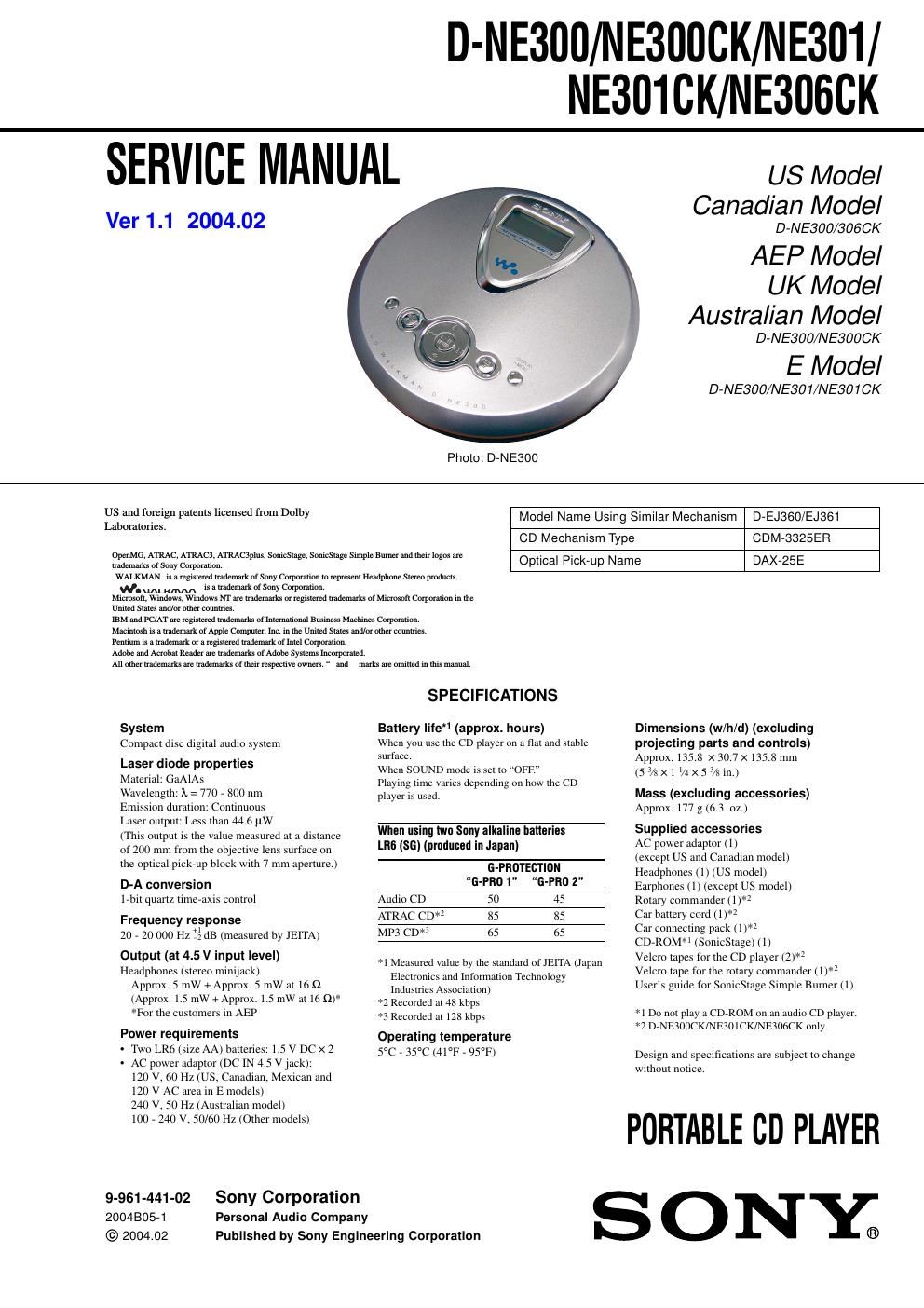Sony d ne 300 ck service manual
This is the 36 pages manual for sony d ne 300 ck service manual.
Read or download the pdf for free. If you want to contribute, please upload pdfs to audioservicemanuals.wetransfer.com.
Page: 1 / 36
